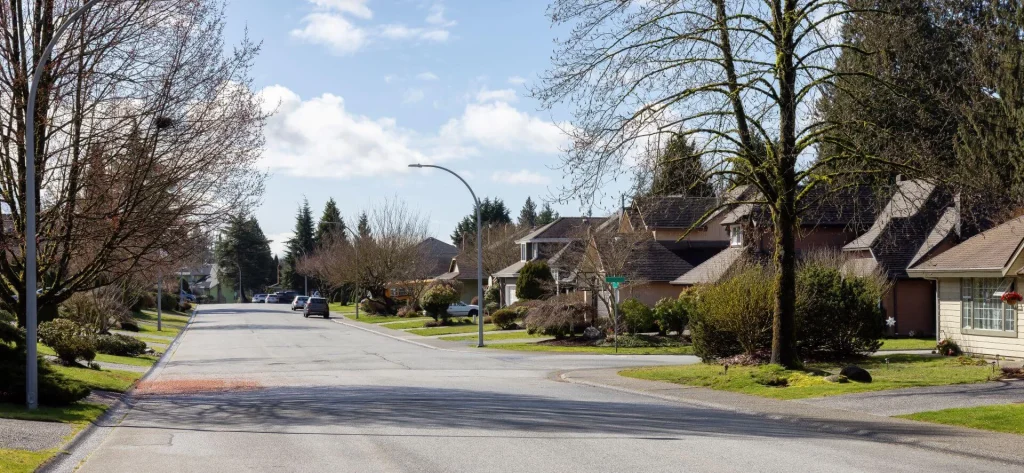Bedroom communities are towns and neighborhoods where most people commute to work somewhere else, usually a bigger neighboring city, and then return home to sleep. These kinds of neighborhoods have existed since shortly prior to World War II.
For example, this applies to people who travel to their RFO units Cavite to rest after a long day of school or work in the city. Bedroom community residents also frequently spend the majority of their time anywhere else, whether at work or enjoying recreational activities.
Moreover, bedroom communities often neglect the local industry and only provide extremely basic or restricted shopping and entertainment options for residents. Although a bedroom community is similar to a suburb, they differ slightly in that they are often farther out, often separated from the city by open space, and situated in more rural or semi-rural settings.
History of Bedroom Communities
As Americans started relocating to the suburbs following World War II, bedroom communities were created. Families expanded at an unprecedented rate between 1946 and 1964, and priorities shifted. Families were looking for well-kept lawns, good schools for their kids, and a place to get away from the criminal activities and air pollution that were prevalent in urban areas at the time. Many were enticed to developer-built neighborhoods where each home blended into the next. By the 1970s, the United States had transformed into a “suburban nation,” helped by the fact that many people had vehicles and could choose to live as close or far from their place of employment as they pleased.
Characteristics of a Bedroom Community
1. Lower cost of living
For individuals and families looking for more affordable RFO units Cavite, bedroom communities may provide better housing values than their closest city.
2. Quiet and Suburban Lifestyle
Compared to the bustling life of the neighboring city, bedroom communities frequently exhibit a more suburban and laid-back lifestyle. They provide a more peaceful environment with less noise and traffic.
3. Commuting to Work
Bedroom community residents frequently travel to the nearby city or urban center for work. In order to get to their places of employment, they might take a variety of kinds of transportation, including vehicles, trains, buses, or other types of public transportation.

Benefits of Living in a Bedroom Community
1. Houses Within Range
In contrast to the greater expense of living in the city, bedroom communities give people the chance to search for more economical home options like available RFO units Cavite.
Given that bedroom communities are frequently found on the outer edges or in the suburbs of significant urban centers, land and property values typically lower than those of in upscale metropolitan districts because they are farther from the city’s center. Developers can build residential units at more nominal prices thanks to the decreasing cost of land acquisition.
2. Quieter Lifestyle
The tranquil environment and slower pace of life provided by bedroom communities are preferred by many people and families.
The location, layout, and community planning of a bedroom community make it more peaceful than urban centers. In order to create a more tranquil living environment, the distance from the busy city center helps to reduce noise pollution and the continual hum of urban activity.
Additionally, the total noise levels are greatly lowered due to the decrease in traffic and motorists, resulting in a peaceful environment.
3. Connection to Nature
Man bedroom communities are strategically located near natural landscapes such as forests, mountains, lakes, rivers, or coastal areas.
Residents have access to nearby outdoor recreation opportunities like hiking, biking, fishing, and relaxing nature walks.
Facilities for outdoor recreation, such as tennis courts, swimming pools, and community sports grounds, are also frequently found in bedroom communities. These facilities promote an active way of life and give residents more opportunities to spend time outside.
4. Reduced Urban Congestion
Residents of bedroom communities can contribute to lessening traffic and urban congestion in the urban center by choosing to live outside of the metropolis.
Most people who live in bedroom towns travel to the adjacent urban hubs for work. However, compared to core metropolitan centers, the number of commuters entering and leaving these communities is significantly fewer because they are situated on the outer edges or in suburban areas. This decrease in commuting traffic lessens congestion on the main highways and roads coming into the city.
Furthermore, well-designed bedroom communities often include sidewalks, bike lanes, and other pedestrian-friendly features. Local transportation dependence on cars then, is decreased as a result of encouraging inhabitants to travel small distances on foot or by bicycle.
Challenges of Living in a Bedroom Community
1. Long Commutes
Longer commutes to work for people who live in bedroom communities might result in more time and money spent on transportation.
While some bedroom communities have excellent public transportation connections to urban centers, others could have fewer or less effective alternatives for getting around. When compared to the convenience of residing near the city’s center, using buses, trains, or other forms of public transportation frequently results in lengthier travel times.
2. Dependency on Urban Center
Residents of bedroom towns heavily rely on the nearby city for job opportunities and access to necessary services since bedroom areas lack significant employment centers.
While some basic services and amenities may be available in bedroom communities, these communities still often rely on the metropolitan center for specialized services, medical facilities, educational facilities, and other essential facilities.
3. Limited Amenities
A lack of services and entertainment choices in certain bedroom communities may force residents to return to the city’s entertainment district.
Bedroom communities might also not have as many or as large of an array of entertainment alternatives as urban areas have, such as theaters, concert halls, and retail complexes. Residents depend on the urban center for amusement and leisure since they frequently travel there for cultural events, social gatherings, and recreational pursuits.
Bottom Line
Living in a bedroom community offers a unique and rewarding lifestyle that combines the comforts of modern living with the tranquility of nature and a close-knit community spirit.
Residents can take advantage of a quieter and more laid-back lifestyle while still being within a short distance of major urban centers for business and entertainment due to lessened urban congestion, affordable housing alternatives, and a strong connection to green spaces.
A bedroom community offers a cozy place to call home, whether you’re looking for a secluded spot to raise a family, an escape from the busy city life, or a chance to adopt a more balanced lifestyle.
Read more: The South: An Overview on Cavite and Laguna and its Communities


